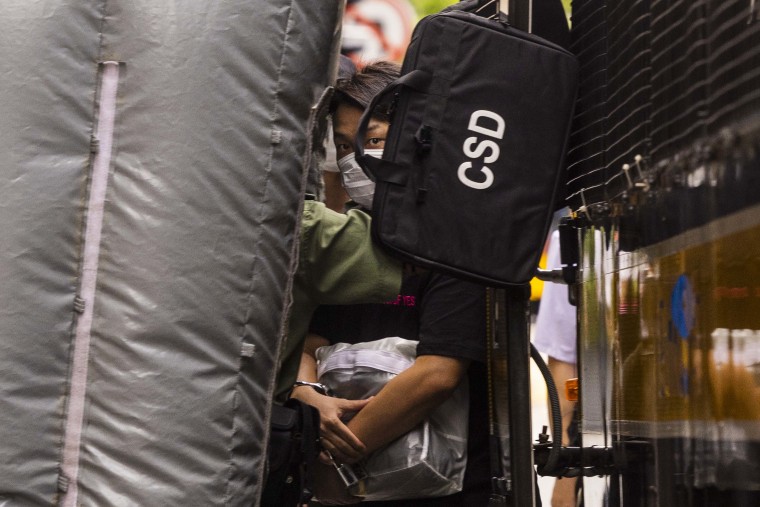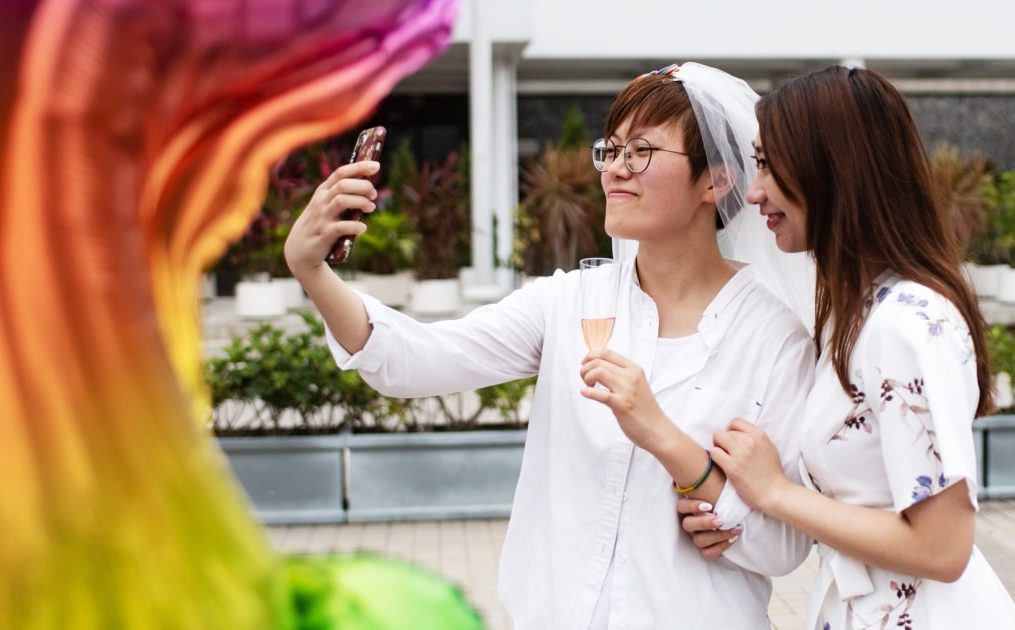Hong Kong’s top court rules in favor of legal recognition for same-sex partnerships
An activist detained in Hong Kong partially won his final appeal Tuesday seeking recognition for same-sex marriage registered overseas, in a landmark court ruling that is likely to have a far-reaching impact on the city’s LGBTQ+ community.
Jimmy Sham, a prominent pro-democracy activist during 2019 anti-government protests, married his husband in New York 10 years ago. Sham first asked for a judicial review in 2018 arguing that Hong Kong’s laws, which don’t recognize foreign same-sex marriage, violate the constitutional right to equality. The lower courts had dismissed his challenges.
Sham has been in custody after being charged under a Beijing-imposed national security law following the massive protests. The law has been used to arrest and silence many other pro-democracy activists as part of a crackdown on dissent in the former British colony.

Judges at the city’s top court, by a majority, declared in a written ruling that the government is in violation of its positive obligation to establish an alternative framework for legal recognition of same-sex partnerships, such as registered civil partnerships or civil unions. But they unanimously dismissed his appeal on other grounds.
Their ruling will have strong implications for the lives of the LGBTQ+ community and the financial hub’s reputation as an inclusive place to stay and work.
Currently, Hong Kong only recognizes same-sex marriage for certain purposes such as taxation, civil service benefits and dependent visas. Many of the government’s concessions were won through legal challenges in recent years and the city has seen a growing social acceptance toward same-sex marriage.
In a previous hearing, Sham’s lawyer Karon Monaghan argued that the absence of same-sex marriages in Hong Kong sent a message that they’re less worthy of recognition than heterosexual marriages.
Sham is the former convenor of Civil Human Rights Front, which was best known for organizing the annual protest march on the anniversary of Hong Kong’s handover to Chinese rule on July 1, 1997, for years.
The group also organized some of the biggest political protests that roiled the city in 2019 but was disbanded in 2021 under the shadow of the security law.
